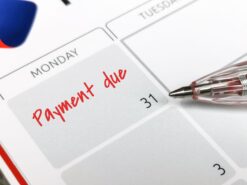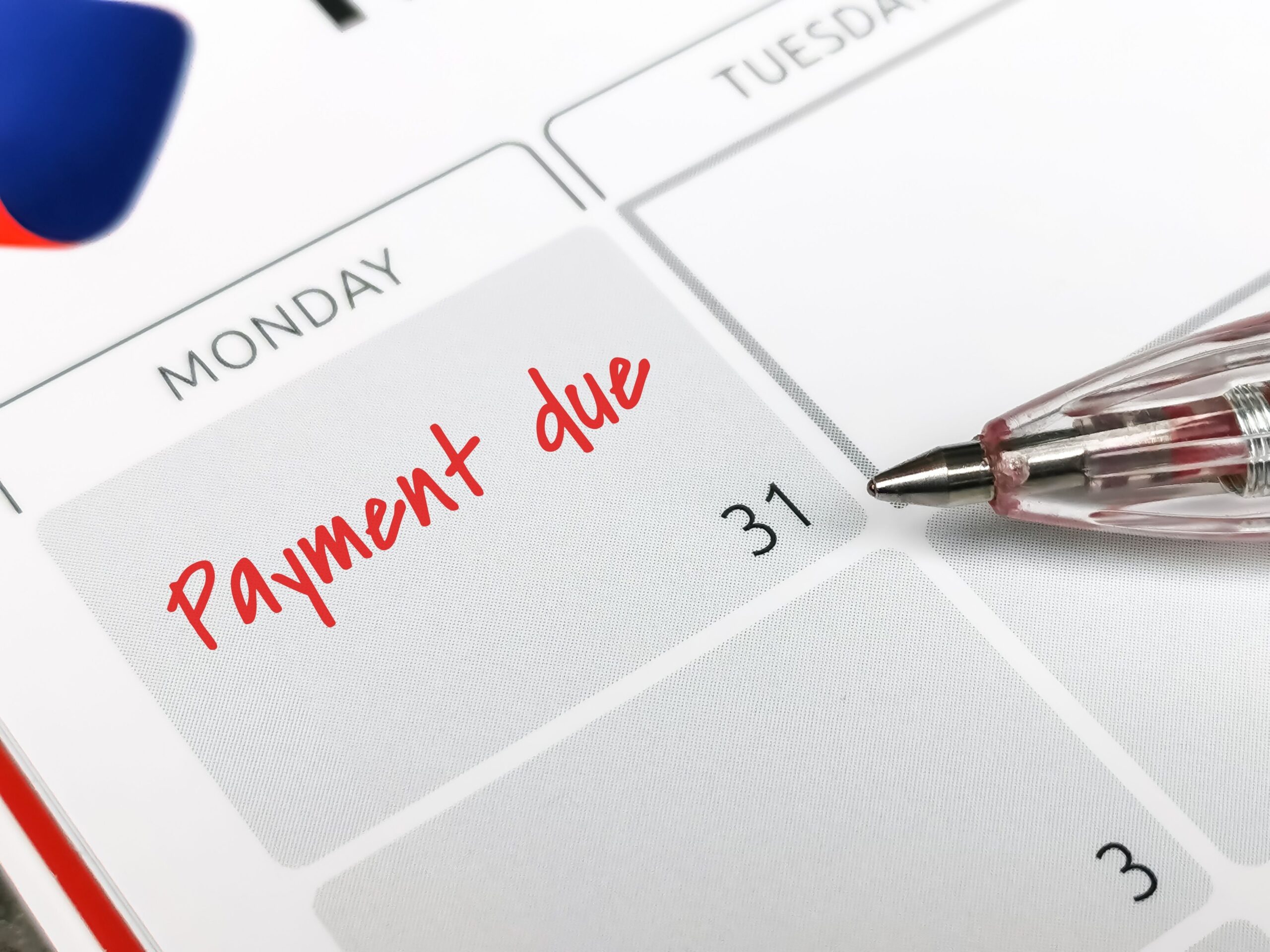
Your IVA payments are not fixed. They could increase during the Arrangement for a number of reasons. There are also limited circumstances where they could be reduced.
Included in this article:
- How are your IVA payments calculated?
- Can your IVA payments go up?
- What happens if you get a pay rise?
- The affect of overtime and bonus payments
- Is your IVA paid faster if you pay more?
- What happens if your living expenses change?
- Can your payments be reduced?
Want to start an IVA? We can help. Give us a call (0800 077 6180) or complete the form below. The advice is free and confidential
How are your IVA payments calculated?
Your IVA payments are based on your surplus income (also known as disposable income). You calculate your surplus income by deducting your total monthly living expenses from your total income.
For example, if your total income is £2000/mth and your total expenses are £1800/mth, your surplus (and therefore IVA payment) will be £200/mth.
You have to hand over 100% of your surplus each month. You are not allowed to hold any of it back. For this reason, it is really important that your living expenses budget covers everything you need to spend your money on each month.
Your budget should include everything from your rent or mortgage payments right down to amounts for entertainment and emergencies.
Our living expenses guide gives more details about what you are allowed to include. Click on the following link to download a free copy: Living Expenses Guide
You will normally have to pay at least £100/mth to start an IVA. If your surplus income is less than this, it is unlikely to be suitable solution unless you know you can increase the payment during the agreement
Struggling to get your head round all of this? We can help. Call us (0800 077 6180) or complete the form below. The advice is free and confidential.
Can your IVA payments go up?
You may think that once your agreement is in place, the payment you originally agreed to remains fixed. This is not the case.
Your IVA payments can and often will increase.
The reason for this is that an IVA is not an agreement to repay a set amount to your creditors. What you are actually agreeing to, is to pay back as much as you can over the length of the Arrangement (normally 5-6 years).
If your financial circumstances improve, your surplus income may also go up. If your surplus does increase, your payments will also increase.
Your payments will only stay the same throughout your IVA, if your surplus income stays exactly the same. This is possible – perhaps if you are already retired and have a fixed income – but it is unlikely.
What happens if you get a pay rise during your IVA?
Getting a pay rise is one of the most common reasons for your IVA payments to go up.
After your income goes up, you must tell your IVA company within 14 days. You will then have to you will need to submit a revised income and expenses budget.
Make sure you include any additional expenses associated with the pay rise in your budget. For example, additional travel costs if you have got a new job.
If your surplus income has stayed the same, so will your payments. But if it has gone up, you will have to add 50% of the increase.
For example, if your surplus has risen from £200/mth to £400/mth the difference is £200. 50% of this addition is £100. So your payments will increase to £300/mth
Don’t wait until your next annual review to tell your IVA company about your pay rise. If you delay, you may find your payments get into arrears meaning they will have to be increased even more to catch up.
The affect of overtime and bonus payments
Your IVA payments are likely to increase when you earn additional money such as extra overtime or a bonus.
Because this additional money is not a permanent increase in your wages, there is no review of your income and expenses budget. It is treated as a one-off additional payment.
The amount you have to hand over, depends on how much extra you earn.
You can earn up to 10% of your take home pay in any given month and this will be yours to keep. However, 50% of any extra in that particular month has to be paid into your IVA.
As an example, if your normal take home income is £1500, you can earn up to £150 extra per month in overtime or bonuses and keep it. But if you earn £250, 50% of the additional £100 (i.e. £50) has to be paid into your IVA. This is in addition to your regular monthly payment.
Need more advice about overtime or bonuses during an IVA? Call us (0800 077 6180) or complete the form below. Its free and confidential.
Is your IVA paid faster if you pay more?
You might think that if your payments increase, your IVA will be paid off faster. This is not the case.
After almost any increase, the same number of payments will still be outstanding. The reason for this is that the amount of debt you pay back during your IVA is not fixed.
The agreement states that where you can afford to pay more, the overall amount of debt you pay back simply goes up. The length of the agreement stays the same.
The result of your IVA payments going up will be that that your creditors get back more of the money they are owed. In other words, a smaller percentage of your debt will be written off that you originally thought.
In some circumstances, an increase in your IVA payments can mean you will end up repaying more than your original debt. If you believe this is likely to happen, you might be better off cancelling the agreement and paying your debt in a different way.
What happens if your living expenses change?
So far in this article, we have focused on how increases in your income can lead to and increase your IVA payments. However, your payments could also go up after specific reductions in your living expenses.
Good examples of specific falls in your living expenses are things like reduced child care costs after a child starts going to school. Another would be if after your car HP payments finish.
In these circumstances, you will usually have to add the money you are not spending to your IVA payment. You will not feel any worse off, but your IVA payments will increase.
You should tell your IVA company as soon as you are aware of any fall in your living expenses. They will then recalculate your monthly payment which will start straight away. If you delay, you may find you have to increase your ongoing payment by even more to catch up with any arrears.
Where you have specific increases in your living expenses – for example your rent or utility bills go up – it might be possible for your payments to be reduced.
Can your IVA payments be reduced if you can’t afford them?
You may find you are struggling with your IVA payments. Perhaps your income has fallen or specific areas of your living expenses have gone up.
In these circumstances, it might be possible to reduce the amount your pay.
First, you will have to do a review of your income and expenses budget. This is to confirm whether your surplus income has actually gone done and by how much.
If it has fallen by less than 10%, it should be possible for your IVA company to reduce your payments without involving your creditors. If the reduction is more than 10%, they will have to ask the creditors to accept any change with a formal variation.
Any agreement to reduce your payments will almost certainly mean your IVA will be extended. This is to compensate the creditors for the the fact that they are now likely to be repaid less. The extension is likely to be between 12 and 24 extra payments.
Your IVA company will only be able to reduce your payments, if the Arrangement will still remain viable. This may not be the case if you already pay less than £100/mth.
It is not always possible to reduce your IVA payments. If you are struggling to pay your IVA, we can explain your options. Call us (0800 077 6180) or complete the form below.
Arrange a call with an IVA Expert
Privacy Policy
Your information will be held in strictest confidence and used to contact you by our internal team only. We will never share your details with any third party without your permission.


